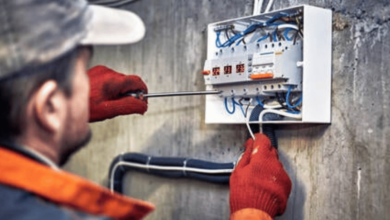Home Improvement
3 hours ago
Vital Role of Electrical Contractors in Modern Society
An electrical contractor can therefore be described as a business person or a company that…
Health & Fitness
1 day ago
How to Prevent and Treat Muscle Pain: A Complete Guide
If you’re someone who regularly experiences muscle pain, you know just how frustrating and debilitating…
Health & Fitness
1 day ago
How Digital Health Records Enhance Patient Safety
In today’s technological era, healthcare has undergone a pivotal transformation from traditional paper records to…
Sports
1 day ago
Why Secondhand Car Parts are a Win-Win for Your Wallet and the Environment
Are you a car enthusiast always on the lookout for ways to fix or upgrade…
Home Improvement
1 day ago
Solving Wiring Problems with Effective Electrical Repair Solutions
Keeping your electrical system in top shape is a crucial aspect of home maintenance. However,…
Health & Fitness
1 day ago
When Should You Really Visit a Skin Doctor?
Knowing when to see a dermatologist is crucial for maintaining healthy skin and overall well-being.…
Home Improvement
1 day ago
Powerful Performance: The Top-Rated Vacuum Cleaners You Need to Know About
It’s no secret that vacuum cleaners are a must-have for keeping your living space clean…
Health & Fitness
1 day ago
From Seed to Sale: Building a Profitable CBD Online Store
With the CBD industry booming, now is the perfect time to get involved. If you’re…
Health & Fitness
1 day ago
The Secret to a Brighter Smile: Maintaining Oral Health with Dental Repair
A bright, healthy smile is more than just a cosmetic asset. It reflects the state…
Health & Fitness
1 day ago
Mastering the Art of Wine Storage to Preserve Your Vintage Collection
Wine storage isn’t just about stacking bottles in a cool, dark place. It’s a nuanced…


























